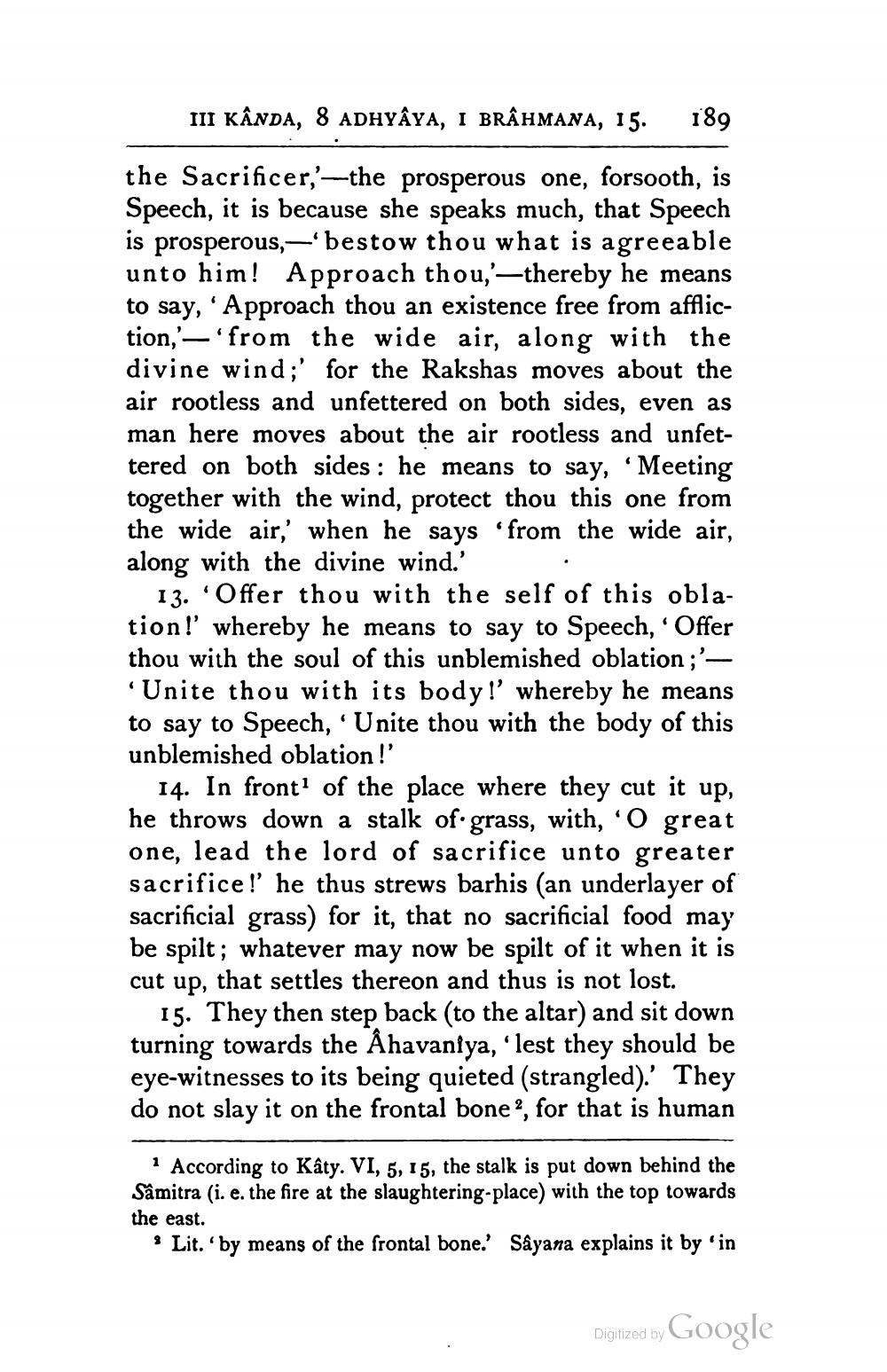________________
III KÂNDA, 8 ADHYAYA, I BRAHMANA, 15.
189
the Sacrificer,'--the prosperous one, forsooth, is Speech, it is because she speaks much, that Speech is prosperous,-'bestow thou what is agreeable unto him! Approach thou,'—thereby he means to say, 'Approach thou an existence free from affliction,'— 'from the wide air, along with the divine wind;' for the Rakshas moves about the air rootless and unfettered on both sides, even as man here moves about the air rootless and unfettered on both sides : he means to say, 'Meeting together with the wind, protect thou this one from the wide air,' when he says from the wide air, along with the divine wind.'
13. Offer thou with the self of this oblation!' whereby he means to say to Speech, Offer thou with the soul of this unblemished oblation ;'"Unite thou with its body!' whereby he means to say to Speech, Unite thou with the body of this unblemished oblation!
14. In front of the place where they cut it up, he throws down a stalk of grass, with, 'O great one, lead the lord of sacrifice unto greater sacrifice !' he thus strews barhis (an underlayer of sacrificial grass) for it, that no sacrificial food may be spilt; whatever may now be spilt of it when it is cut up, that settles thereon and thus is not lost.
15. They then step back (to the altar) and sit down turning towards the Åhavaniya, “lest they should be eye-witnesses to its being quieted (strangled).' They do not slay it on the frontal bone ?, for that is human
1 According to Kâty. VI, 5, 15, the stalk is put down behind the Sâmitra (i. e. the fire at the slaughtering-place) with the top towards the east.
* Lit. ' by means of the frontal bone. Såyana explains it by'in
Digitized by Google




